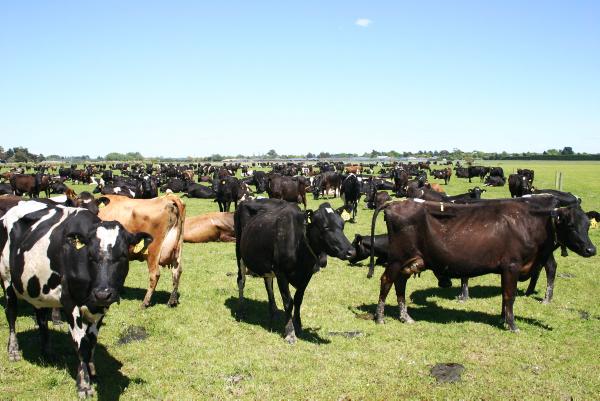The predicted New Zealand milk price is down 45% in 12 months and it’s going to make for a challenging year for the country’s biggest and most valuable industry.
These were the words of Mike Petersen, special agricultural trade envoy, speaking in Dublin as he tours the world meeting political and industry leaders with a view to improving trade and market relationships.
He said: “The scale of the milk price drop hasn’t yet affected New Zealand dairy farmers because they are still reaping part of the returns of a massive milk price payout last year but, come the end of November, it’s a whole new ball game, and the reality of the world markets will begin to hit home.”
Recent statistics from New Zealand put the cost of production at around $4.50/kg and then, on many farms, you need to add at least another $1/kg milk solids of debt servicing, so you are looking at a breakeven year at best for the average dairy farmer (23.5c/litre).
Mike said: “The reality is heavily borrowed, new conversions could be in trouble, especially if this low milk price stays around for more than a year. Our banks have been doing their budgets for dairy farms at NZ$5.50/kg milk solids and now the market is predicting a return of NZ$5.30/kg, counting in a 30% recovery in prices, so if there is no recovery the reality is that the payout could be closer to NZ$5/kg (21.3c/l). At the moment, dairy farmers are revising a lot of provisional tax payments after the NZ$8/kg (34.2c/l) payout last year.”
Milk output growth
Mike estimates that the growth in dairy output will average close to 2% this year, although early season indicators show a 5% lift in milk volumes. He said: “There are now real constraints on production from New Zealand dairy farms, such as resource constraints and water and nutrient management issues, that are limiting conversions and halting expansion.”
Dairy cow inductions
The practice of inducing calf births before due time has been phased out and is now banned on all New Zealand farms. The dairy industry has taken the initiative and is collectively driving this agenda on New Zealand dairy farms. Customers want an ethical and clean image and the dairy industry is responding accordingly to do what it takes to deliver that.
Volatility issues
Market volatility is not good for the supplier or the purchaser of product. Does New Zealand have a quick-fix solution?
Mike said: “The primary drivers of this market price change seem to be mostly around supply issues driven by weather events and the large supply increase in the US and Europe. We have no quick-fix solutions to either of these types of events. We continue to strive to develop new markets and we remain focused on dismantling the barriers that prevent us from getting into the EU market. Volatility is brutal but this looks likely to dominate markets for the foreseeable future and farmers need to set up for more of it.”
European partnerships
Fonterra already has good partnerships with many European companies but Mike says that getting into EU markets is challenging for New Zealand dairy exporters.
Mike explains: “Fonterra has partnerships and joint ventures with European companies in Lithuania, Britain, the Netherlands and Germany, but these are mainly dealing with product that is surplus to EU requirements, such as whey, but there are barriers to forming partnerships that we would like to see removed.”
Dairy prices have driven up the price of land in recent years and now a hectare in New Zealand is comparable to Irish prices at €25,000/ha ranging to €30,000/ha for choice lots.
Russia is the second biggest dairy market in the world. Will the Russian import ban on European products help New Zealand dairy sales into Russia?
Mike believes the answer is no because many of the New Zealand plants are not approved to export to Russia and the import ban is having a heavy impact on prices for New Zealand farmers with the displacement of product pushing the trade down for all dairy farmers worldwide.
The objective of Mike’s role is to firstly make other people better understand the New Zealand primary sector in world markets, secondly to foster agricultural co-operation with other global companies, and thirdly to advance the trade agenda between New Zealand and other countries.
Mike Petersen is the New Zealand government’s appointee for meat, wool, dairy, horticulture and wine. Two New Zealand government ministers, Tim Groser and Nathan Guy, appointed Mike to his post. Prior to taking up the role of Special Agricultural Trade Envoy, Petersen was chairman of Beef and Lamb NZ. His role is now broader and very much focused on the trade agenda as it relates to agriculture.





SHARING OPTIONS